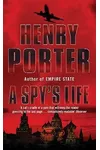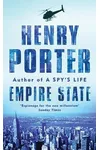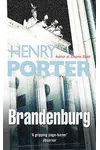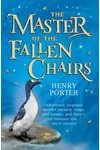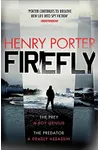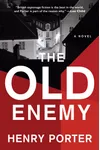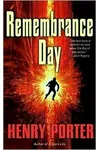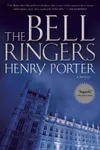Picture a British storyteller who weaves heart-pounding thrillers with a journalist’s sharp eye for truth—meet Henry Porter! Born in 1953, this English author and former columnist for The Observer has captivated readers with award-winning novels like Brandenburg while championing civil liberties in his activism. From the fall of the Berlin Wall to modern surveillance, Porter’s stories thrill and provoke, blending espionage with real-world stakes.
With a career spanning journalism, fiction, and political advocacy, Porter is a multifaceted figure whose work resonates with fans of John le Carré. Ready to dive into his world of spies, secrets, and suspense? Let’s explore the life and legacy of this literary dynamo!
The Making of Henry Porter
Born into a military family in 1953, Henry Porter spent his early years in Germany and various army camps, a nomadic childhood that sparked his curiosity about the world. Educated in Worcestershire, at Wellington College, and later at the University of Manchester, Porter’s path to writing was anything but conventional. He cut his teeth in journalism, working at Private Eye magazine in the 1970s, where he met his wife, Liz Elliot. His career blossomed as he contributed to major broadsheets like The Guardian and served as the British editor of Vanity Fair for 25 years until 2018. This rich journalistic background infused his thrillers with authenticity and a keen sense of societal undercurrents.
Henry Porter’s Unforgettable Stories
Porter’s novels are masterclasses in espionage, blending meticulous research with pulse-pounding narratives. His breakthrough, Brandenburg (2005), set during the 1989 fall of the Berlin Wall, won the CWA Ian Fleming Steel Dagger Award for its vivid depiction of East Germany’s collapse. The story follows Dr. Rudi Rosenharte, a former Stasi agent, navigating a web of betrayal—Porter’s own coverage of the event as a journalist lends it gripping realism. A Spy’s Life (2001) kicks off with a dramatic plane crash, thrusting ex-spy Robert Harland into a world of intrigue, showcasing Porter’s knack for high-stakes openings.
Firefly (2018), a critically acclaimed thriller, follows ex-MI6 agent Paul Samson as he tracks a Syrian refugee holding vital intelligence. Porter’s immersive research—walking migrant routes in Macedonia—brings authenticity to the tale. The Bell Ringers (2010) explores a dystopian England under Orwellian surveillance, reflecting Porter’s civil liberties advocacy. His style, often compared to le Carré, marries complex plots with richly drawn characters, tackling themes of freedom, loyalty, and moral ambiguity.
With ten novels, including a children’s book, The Master of the Fallen Chairs, Porter’s versatility shines. His ability to weave real-world issues into fiction makes his work both thrilling and thought-provoking, appealing to readers who crave substance with their suspense.
Why Henry Porter Matters
Henry Porter’s impact extends beyond the page. His novels, lauded for their intelligence and relevance, have earned him a reputation as one of Britain’s finest thriller writers. Brandenburg’s award and Firefly’s praise from figures like Lee Child underscore his influence in the espionage genre. As a journalist and co-founder of the Convention on Modern Liberty in 2009, Porter has been a fierce advocate for civil rights, shaping public discourse on surveillance and democracy. His activism, including the West London Tsunami Appeal and the Snowden debates, reflects a commitment to social good, making him a cultural force.
Porter’s legacy lies in his ability to entertain while challenging readers to question authority and value freedom. His stories, grounded in real-world stakes, continue to resonate in an era of global uncertainty.
- Born: 1953, England
- Key Works: Brandenburg, Firefly, A Spy’s Life, The Bell Ringers
- Awards: CWA Ian Fleming Steel Dagger (2005) for Brandenburg
- Fun Fact: Porter walked migrant routes in Macedonia to research Firefly!
Snag Firefly or Brandenburg and dive into Henry Porter’s thrilling world of spies and secrets!
